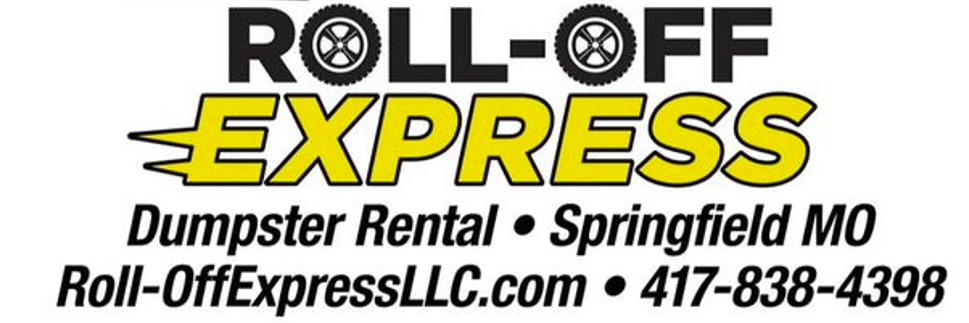When you’re planning a project that requires a dumpster, understanding the costs involved is essential. Prices for a dumpster rental Springfield MO can vary based on size, type of waste, rental duration, and location. A small 10-yard dumpster may cost around $300 to $400, while larger options can exceed $800. However, there are several other factors that influence pricing and can lead to unexpected fees. Here’s a full breakdown to help you plan more effectively.
Understanding Dumpster Sizes and Their Costs
Dumpsters generally range from 10 to 40 cubic yards, and each size fits different project scopes:
- 10-yard dumpsters are suitable for small cleanouts and cost about $300–$400.
- 20-yard dumpsters work well for medium renovations, ranging from $350–$500.
- 30-yard dumpsters are ideal for major remodels and cost between $400–$600.
- 40-yard dumpsters are used for large-scale or commercial jobs and run $500–$800.
Choosing the right size prevents overpaying and ensures you have enough space for your waste.
Factors Influencing Dumpster Rental Prices
Selecting a size is just the first step. Several other elements affect the final price:
- Type of waste: Household or yard debris is cheaper to dispose of than construction or hazardous materials, which require special handling.
- Rental duration: Longer rentals cost more. Companies typically offer rates based on a standard period, with extra days billed separately.
- Seasonality: Demand spikes during spring and summer, often leading to higher prices.
- Weight limits: Exceeding the allowed tonnage results in overage fees.
- Service structure: Delivery, pickup, and weekend or off-hour servicing may carry additional charges.
Understanding these variables will help you estimate total costs more accurately.
Location and Its Impact on Pricing
Dumpster rental pricing varies by region. Urban areas often charge more due to space constraints, regulations, and higher disposal fees. If your project is in a rural area, rates may be more affordable.
Local factors also include:
- Disposal costs: Higher landfill fees in your region will be reflected in your rental price.
- Accessibility: Hard-to-reach locations may incur extra service fees.
- Permits: Some cities require permits for placing dumpsters on public property.
Always compare providers in your area to find the most cost-effective option.
Types of Waste and Disposal Fees
The material you’re disposing of plays a significant role in pricing:
- Low-cost items: Yard waste, furniture, and household junk.
- High-cost items: Construction debris, roofing shingles, and appliances.
- Prohibited items: Tires, batteries, and hazardous materials may be restricted or incur steep surcharges.
Check with your rental company for a detailed list of acceptable waste to avoid unexpected fees.
Typical Rental Periods and Their Costs
Most companies offer dumpster rentals for one to seven days. The length of time significantly affects the cost:
- One-day rental: Ideal for quick jobs; typically the cheapest option.
- Weekend rental: Great for DIY projects but may have slightly higher rates.
- Extended rental: Additional days are billed daily, offering flexibility at a premium.
Understanding your timeline and booking accordingly helps you avoid paying for unused days.
Additional Fees to Consider
Beyond the base price, here are some fees that can increase your total bill:
- Weight overages: Exceeding tonnage limits leads to additional charges.
- Late returns: Keeping the dumpster longer than agreed incurs daily fees.
- Restricted items: Disposing of prohibited or hazardous materials can result in penalties.
- Permit fees: Some municipalities require permits, which may not be included in your quote.
- After-hours service: Deliveries or pickups outside normal business hours often cost more.
Ask for a full list of potential fees before confirming your rental.
Comparing Prices From Different Rental Companies
To ensure you’re getting the best deal, comparison shopping is essential:
- Request quotes from at least three companies using the same specs (size, rental length).
- Ask about inclusions: Make sure you understand what’s covered—delivery, pickup, weight limits, and taxes.
- Review the fine print: Look out for hidden charges or limitations.
- Read reviews: Customer satisfaction often signals reliability.
- Check for deals: Some companies offer seasonal promotions or volume discounts.
Doing your due diligence helps you make an informed, cost-effective choice.
Budgeting for Unexpected Expenses
Even with thorough planning, additional costs may arise. Set aside a contingency budget to handle:
- Extra days if your project runs long.
- Weight overages from underestimating debris.
- Fines due to disposal of prohibited items or permit issues.
Planning for these ensures your project stays on track without financial strain.
Tips for Getting the Best Deal on a Dumpster
Looking to keep costs down? Try these strategies:
- Book early: Advance scheduling can secure better rates, especially during peak season.
- Choose the right size: Don’t overestimate your needs—larger dumpsters cost more.
- Keep the rental period short: Minimize rental duration to avoid daily overage fees.
- Ask about bundled pricing: Some companies offer flat rates that include delivery, pickup, and a set weight limit.
These steps can save you both time and money.
When to Consider Alternatives
Dumpster rentals are great for large jobs, but they’re not always the most efficient option:
- Small cleanups: Curbside bulk pickup may be sufficient.
- Hazardous waste: Specialized recycling centers handle these better.
- Rush removals: Junk removal services are faster, though often more expensive.
- Donations: Usable items can be given to charities instead of thrown out.
Evaluate your project’s needs before committing to a rental to ensure it’s the best fit.

